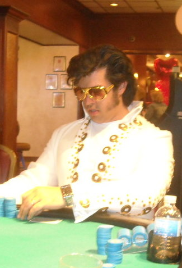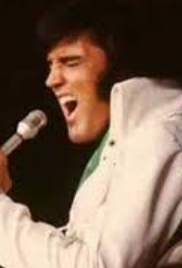Basically, I feel this is a very good first draft. There’s some strong ideas here, but they get undermined by clunky dialogue, and some typos. I try to be specific to the text, and quote it as much as possible to let you see your own errors.
Mason’s parents’ scene, when Katherine confronts her husband, sounds like a computer wrote it. His mom is defending her son, but she just says in rote what happened. What she is accusing him of is child abuse: “And not only did you called [sic] him a faggot – you got up and took him to his room to beat him with your belt. You decided to do this when it was his last day of high school ever” (37). We already know this. What you’re missing is Katherine’s emotional life. How it affects her, and their marriage.
You don’t describe anything specific to 1979. You name Tommy’s car model, that’s it. In fact, when Mason and Mandy go to a retro diner, you write it “[s]eems to look like it’s from more the 50s than 70s” (39). You don’t describe it at all. Arguably it would be a retro-retro scene. The reason for being 1979 is never justified.
There are times you write what the character is thinking in the stage directions, which an audience can’t know. For instance, “Mason is in shock that Mandy might actually be a mind reader. He doesn’t know what to say” (44). You have to show this through action and dialogue. It’s futile to write like a novelist.
Mason’s aspirations to “Hopefully go big. I’m talking Hollywood Mandy. Get out of Garden City and forget this place” (47), reads as cliché. It’s generic.
He doesn’t get specific as to why he likes Elvis. He just says “All his songs were masterpieces” (46). That’s not saying much. We know he was good, he’s “The King.” But what exactly - or at least more specifically - does he mean to this young man? He dresses like him, but we don’t know if Mason sings like him. We’re not told if he tries to imitate his singing, which is very distinct and should be mentioned. Andy Kaufman, for instance, did an amazing Elvis impersonation (on YouTube his video has 6.8M views). In fact, Elvis impersonators are widely known. The fact that it’s not mentioned if his singing style imitates him is really overlooking a big detail. Furthermore, that his dad thinks he looks gay for dressing like Elvis makes no sense. He’s not cross-dressing. Elvis was as macho and masculine as you can get. He had a deep, commanding voice. And he’s more out of Mason’s dad’s era than his own. His dad should be all the more accepting, as Elvis has never had any negative connotation associated with him. It’s not like he’s acting like Michael Jackson.
Mason says something inexplicable, “It’s nice that my friends see me as the next Elvis Presley, but I don’t wanna be. That’s not what I want to be seen as. I want to be seen as Mason Washington” (47). Then why does he dress like Elvis, sing his songs, does his hair like him? Someone who wants to be seen as an original wouldn’t cover his walls in Elvis posters and all the aforementioned imitation of him.
This is an odd statement: “He cares about one other thing, which is my little sister. He loves that little brat more than he loves his own wife. Can you believe that” (48)? It’s not uncommon for parents to love their children more than their spouse. In fact, it’s pretty much a universal sentiment.
Mason’s mother asks him to resolve “[w]hatever is going on with you and your father” (58). This reads as very odd. Firstly, his father calls him gay unprovoked, secondly, when Mason defends himself his father beats him. This is a serious issue of child abuse, and his mother just nonchalantly tells Mason, “I’d like it to be fixed at some point… I don’t support what your father does to you… you should know that, but I do support you” (59). Is Katherine completely dense? Rightfully so, Mason responds, “He calls me a faggot any chance he gets. He walks all over, not only me but you too. Ma… he doesn’t love us” (59). She just reiterates, “Talk to him sometime. Okay” (59). This is very odd. If it is the writer’s intention to make the mother in denial, wouldn’t she just not address this? Since she does, why does she act like it’s not a systemic cycle of abuse that is going to take a hell of a lot more of an intervention than the victim trying to stop it?
His father’s abuse is real, and no one really thinks of it as that. It’s as if they’re just having a spat. Even Tommy, striking Louis should be a big deal. Have you interrupted an argument your friend’s parents had by striking one of them? And if Katherine immediately brings up to Mason about resolving it with his father, and not “supporting” the abuse he inflicts on him, after seeing her husband clutching Tommy’s collar (and probably with an exasperated look and red face from just being struck by him), why does she just accept what they were doing as “[g]uy horseplay” (58)? It’s endemic in how the script brings up serious issues that get glossed over.
There’s intermittent Elvis songs that have nothing to do with the story. As they’re driving to the beach it says “CUE: YOU’RE THE DEVIL IN DISGUISE BY ELVIS PRESLEY” (59). I don’t know how this helps the aesthetic. The title means something looks good but is actually of the Devil. The next scene is them arriving at the beach and seeing the jocks there. This is not welcomed, but has nothing to do with the theme of a devil in disguise. You’re trying to infuse the movie with a soundtrack that forces an ambiance of Elvis’ spirit, but it seems arbitrary.
The resolution with the jocks and Mason’s crew is effective, though “this bullshit high school war” is never explained (63). Presumably, there are groups, or cliques, at school - though the jocks’ group is self evident, it’s never explained what kind of group is Mason and his friends. It does show maturity on the protagonist’s side that he wants to stop the fighting because they are finished with high school and should be above that. This is one of the rare moments of character development, and I would ask that it should be further developed. What are other areas of Mason’s life that are changing, and he is getting a new, mature perspective on?
The party at Mason’s grandmother’s house is not described or portrayed very interestingly. A line like, “Y’all like music, right?” is redundant (73). Who doesn’t like music, especially at a party? Another example of Mason’s contradiction of wanting to be an original is when he is to sing for the party he says, “Fuck it. Let’s do it. You guys like ‘The King’” (73)? Even with a tepid response, he still persists, “Oh c’mon. Well, tonight is gonna be different. I’m gonna get all of ya to love ‘The King’” (73). He sings “Burning Love.” Again, there is no description of his style, whether he sings like Elvis, which would make sense, since he specifically said he wants them to “love ‘The King.’” All that’s supplied are the lyrics of the song, and at its completion everyone cheers. However, reading lyrics and not hearing the music is akin to skiing without snow, it just doesn’t work. So I suggest you use actions, gestures. What does he do while singing? You can even say: “He hangs on every word, drawls, grimaces, as if in pain and then oscillates to pleasure.” Paint the picture for us. Reading lyrics is dull.
The next scene Mandy mentions there were “hundreds of kids” at the party that Mason turned onto Elvis (79). That was not depicted, so you should describe that massive turn out. Hundreds of kids at a house party is exciting, and that he sang for all those people, and they liked it, is a huge deal. You should describe the teens, individually and as a group, because they’re not depicted at all.
At the diner Mandy’s dad is very abrasive, and it comes off as another two-dimensional parent portrayal. After Mandy has had a disagreement with her father over his new girlfriend he cheated on her mother with, she leaves and Mason decides to confront him. He’s only been going out with Mandy a few days, so frankly, I don’t see what gives him the balls to go up to his new girlfriend’s father and address his infidelity. It feels more like you’re running low on plot developments, so you take up the occasion for conflict wherever you can get it. Her dad’s reaction, and temperament, are exactly like Mason’s dad. He cusses at Mason just when he simply solicits a conversation, saying, “Mr. Davidson?” and Mandy’s dad responds, “Yes? Who the fuck are you” (82)? When he says, “Just wanna talk.” Mr. Davidson says, “I don’t wanna talk. Get the fuck outta here before I make you” (82). This is almost a mirror image of Mason’s dad. And the same exact thing occurs. He calls Mason a faggot (and as this is the second person calling him a faggot, and as the word is very offensive, even in 1979, you should really decide on a detail that makes people see him as effeminate, because, again, Elvis wasn’t ever considered effeminate. You act like he’s dressed as Freddy Mercury). Mason strikes him three times in the face, just like one of Mason’s friends did to his father. They just seem like rote actions, same ones, so far two different fathers, yet nearly identical characters, and soliciting the same violence, which rings false.
People rarely strike each other after just one insult, especially in a public place. And I’ve never heard of a friend hitting their friend’s father, even telling him (Mason’s dad) that he’s an abusive parent and deserves it. Child abuse is such a serious thing. For Mason’s friend just to outwardly confront him with it, seems forced. It’s psychologically damaging, coming from a damaged person, inflicting that damage onto his son. To have another character address it, then strike the man is way too simplistic a depiction. It’s very primitive and not nearly as interesting as it could be if played more discreetly.
Based on Mandy’s father’s threat, Mason thinks he’s endangered his friends and family. He only wanted to make them safe, he says, he’s trying to fix it, however, “We can deal with his bridge when it comes” (91). I’m guessing it should be this bridge, not his, but the saying isn’t correct either. It’s generally, “We can cross that bridge when we get to it.” And in one of the more rudimentary plot developments, Mason worries inexplicably about Larry, Johnny, and Tommy. Why? Mandy’s father wouldn’t even know who they are, and what do they have to do with Mason’s punching him?
Apparently, Mandy’s father is a force to be reckoned with, as Mason’s dad exclaims, “He’s gonna get us all killed” (91)! Into the fray comes Mary Allen, Mason’s kid sister, who wants pancakes. She’s refuted by her mother, but stands firm, “I want pancakes” (92). And here you revert back to your stage direction thoughts: “Katherine looks at Louis that says ‘Are you serious?’ Louis then gives her a look that says ‘Now!’” (92). Louis folds and tells Katherine to make the pancakes, and “Mason can’t believe what he has just seen. He gives his father a look that says ‘You son of a bitch’” (92). Then he actually says, “You motherfucker” (92). “Everyone can’t believe what Mason has just said” (92).
And if Mason wants to read the riot act to his father, and claim he doesn’t love him or his mother, it’s not good form to then call his sister a derogatory name, because his father values her more than the others, as Mason says, “That you clearly have a higher amount of love for this brat than you do for your own son and wife” (93). Mason is supposed to be our protagonist, and he comes off as petty and uncaring as his father that he claims is mistreating and not loving them. Obviously, he’s jealous of his sister, but he’s disrespecting her in his attempt to gain respect with his father. It’s not very heroic, or honorable, especially at a moment, which should be loaded with significance: The asking of the love from one’s parent. What should be a revealing and intimate exposure to a character, and his attempts to control and win his destiny (at this point in the script which should be its rising climax), comes off as shallow and foolishly fought for.
Louis’ defense is laughable. He says he’s always loved Mason, and gives two examples of fatherly love, both of which are shallow: “When you were thirteen and broke your leg, who came out to make sure you were okay? And then took you to the hospital… When you were seven and started choking on that piece of lamb on Christmas, who got up off their ass as soon as they noticed you couldn’t breathe” (94). The use of the word ass here sounds really strange. As if he was saying he’s a pain in the ass, or it was a pain in the ass to have to get up and help him. Also, he, or you are confused about which limb he broke, because he then says it was his arm: “If I didn’t love you, I would’ve let you choked and died. I would’ve let you sit there in pain when you broke your arm” (94). Actually, Dad, if you didn’t help him in those two instances it would be child abuse and negligent homocide.
Overall, I like a good family drama, and a kid with a dream to be somebody, as your title suggests. I just think you need to further develop these characters. Like Mason’s three friends, they all seem the same. And the two fathers speak with the confrontational cussing and the same temperament. And they both call him a fag, which seems very strange. Katherine just speaks the obvious, and Mandy blatantly leaving her jock boyfriend for Mason seems unwarranted.
Hope you keep at it, and that I helped in some capacity!



















